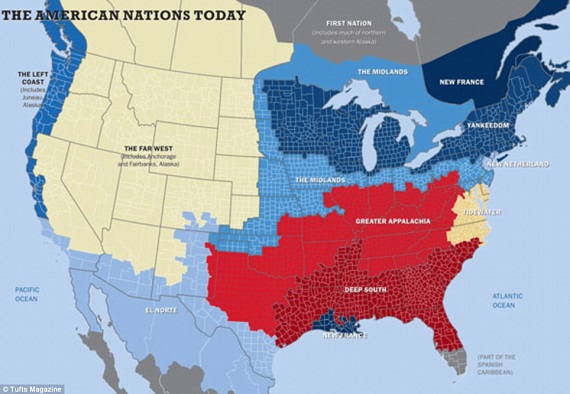The South and the Moral Challenge of Slavery by Donald Livingston Blog Post
Thu, 17 Jul 2014 16:10:02 +0000 donlivingston Download MP3
Thu, 17 Jul 2014 16:10:02 +0000 donlivingston Download MP3
Wed, 13 Aug 2014 00:11:10 +0000 donlivingston Download MP3
Wed, 13 Aug 2014 00:12:15 +0000 donlivingston Download MP3
Mon, 14 Jul 2014 01:53:36 +0000 Clyde Wilson Download MP3
Thu, 17 Jul 2014 16:06:24 +0000 donlivingston Download MP3
Mon, 14 Jul 2014 01:29:15 +0000 donlivingston Download MP3
Tue, 08 Jul 2014 19:11:43 +0000 donlivingston Download MP3
Wed, 09 Jul 2014 13:27:16 +0000 donlivingston Download MP3
Mon, 07 Jul 2014 13:06:56 +0000 donlivingston Download MP3
Mon, 07 Jul 2014 13:08:13 +0000 donlivingston Download MP3
Mon, 07 Jul 2014 14:06:15 +0000 donlivingston Download MP3
Mon, 07 Jul 2014 14:07:31 +0000 donlivingston Download MP3
Fri, 27 Jun 2014 17:26:09 +0000 donlivingston Download MP3
Fri, 27 Jun 2014 17:31:45 +0000 donlivingston Download MP3
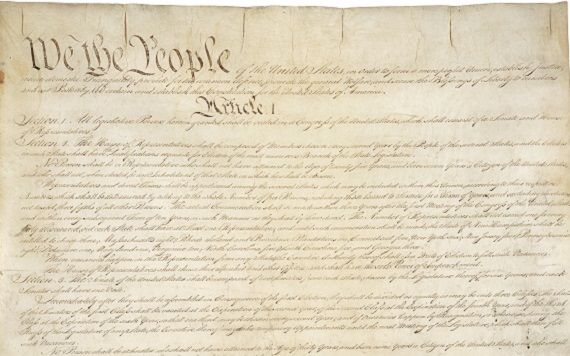
In September 2010, the University of Virginia hosted a debate between Abbeville Institute founder Don Livingston and Professor Allen Guelzo, recognized to be one of the foremost Lincolnian scholars in the United States, on the topic “Is Nullification Constitutional?” Guelzo is as committed to the Lincolnian position of an “indestructible Union” as Livingston is to the compact fact of the…
Wed, 02 Jul 2014 08:40:41 +0000 donlivingston Download MP3
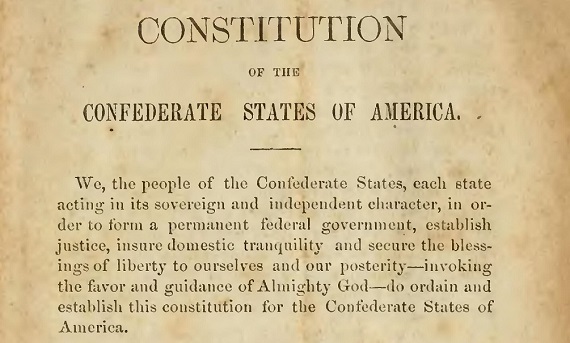
The Confederate Constitution of 1861 is a misunderstood document that made improvements on the United States Constitution. What were they? Professors Donald Livingston and Marshall DeRosa discuss the Constitution and its currency in modern America.
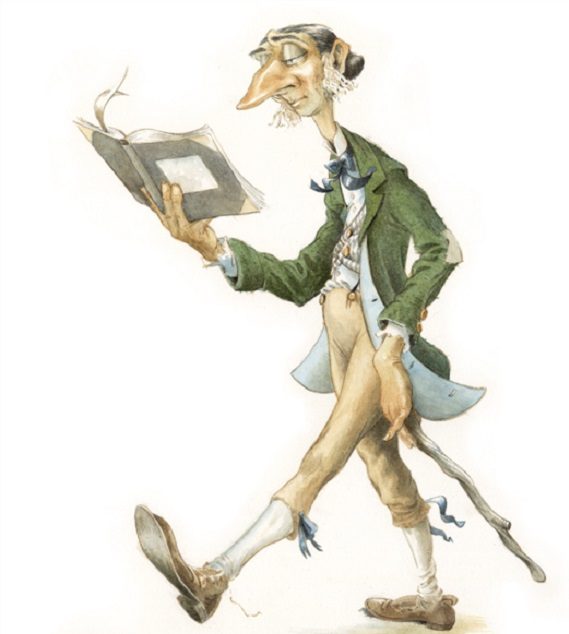
Originally published at Mises.org. Many historians have commented on the extent to which Abraham Lincoln centralized federal power in the course of his war against the South. Less often remarked upon is the fact that this trend continued during the Reconstruction era, 1865 to 1877. In his essay “Wichita Justice? On Denationalizing the Courts,” Murray Rothbard observes that the Reconstruction…
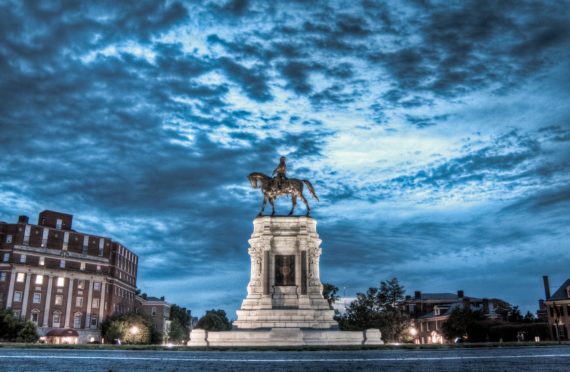
This essay was originally published at Mises.org. Various justifications have been advanced by those removing or destroying Confederate monuments to explain why they deem it necessary to dismantle the Confederate heritage. For example, the memorial to Zebulon Vance in Asheville, North Carolina was demolished on grounds that it was “a painful symbol of racism.” In the tumult surrounding the Black Lives Matter riots, “168…
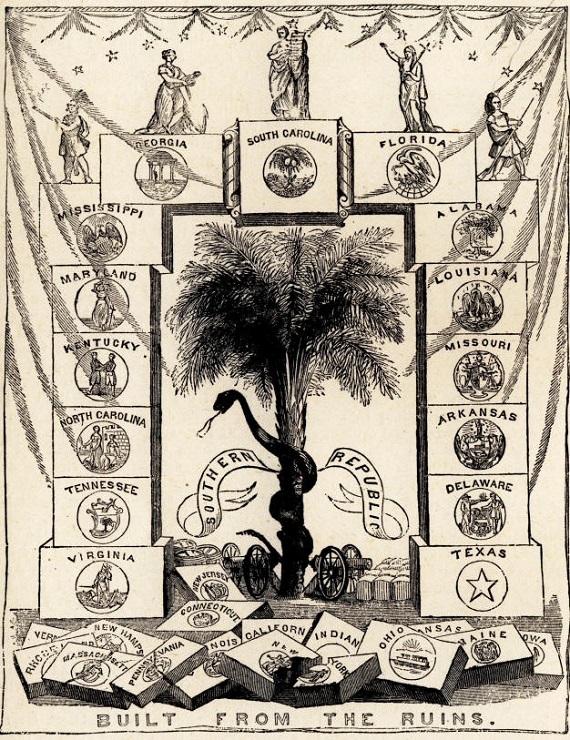
The Institute was founded in 2002 around a conference table at the University of Virginia. We held our first Summer School in 2003. Here, President Emeritus Donald Livingston discusses “What Secession Is” at this first summer event. It’s a worthy topic in our current political climate.
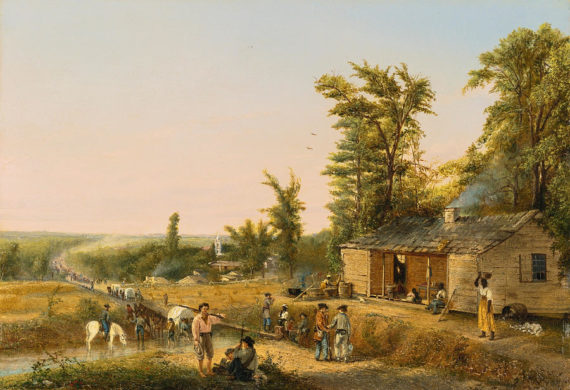
When speaking at Abbeville’s “The 1607 Project,” someone from the audience came to me, after my talk—and the Abbeville audience was electric!—and said, “You really mean what you say.” It was a curious sentiment, for by implication, I could conclude that many speakers at that or other conferences merely go about the business of public speaking without investing personally in…
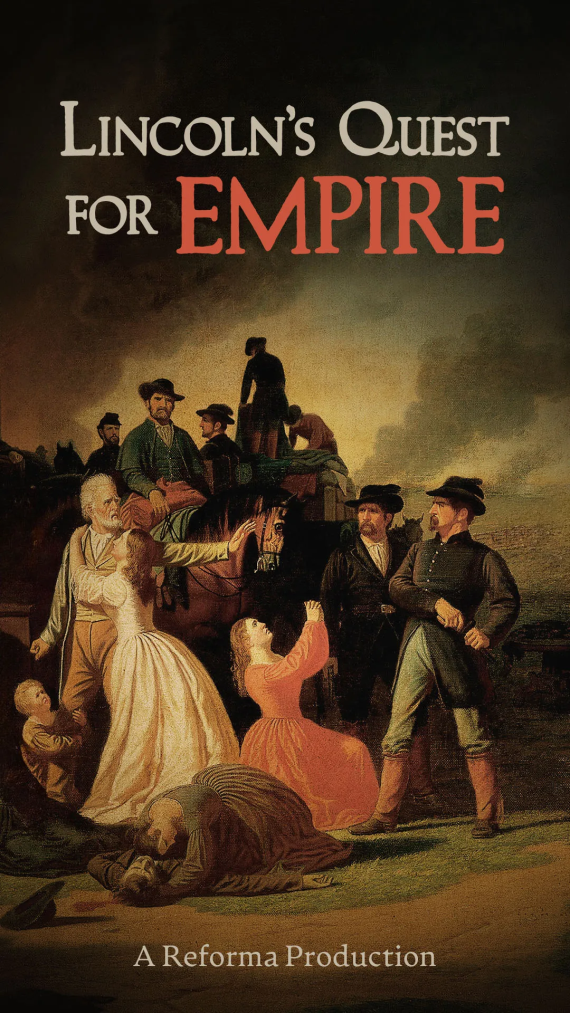
Many Americans cherish the image of Honest Abe Lincoln: a lad born in humble circumstances who succeeded by hard, sleeves-rolled-up work; became President, fulfilling his lifelong goal of freeing the slaves, meanwhile saving government of, by and for the people; and was martyred and wafted to Heaven by angels. This image is folklore, no more related to the facts of…
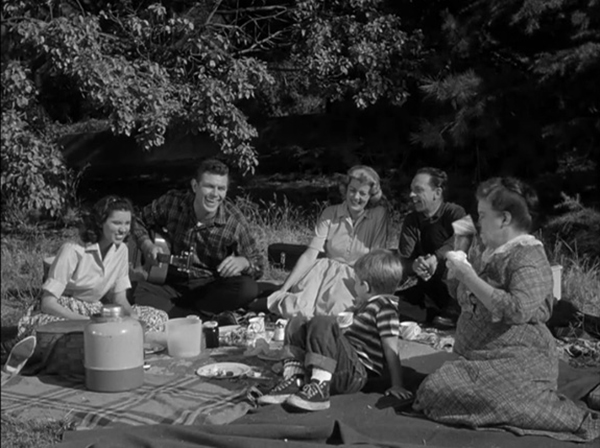
It’s hard to believe, but John Shelton Reed’s classic sociological study The Enduring South was first published a half century ago. I long ago gave my copy to a student, but, as I remember, Reed’s findings pointed to a persistent identification of a great many people as Southerners by use of various opinion surveys. Persistent peculiar Southern aspects of behaviour…

Donald Livingston Download MP3
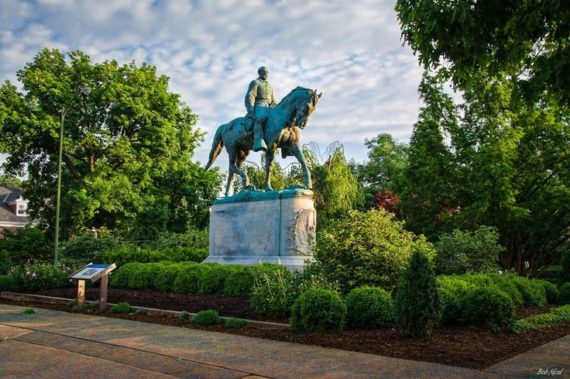
Editor’s Note: Former Abbeville Institute summer school student Jon Harris and his Last Stand Studios produced this original documentary about American monuments and the ongoing American iconoclasm. It features Abbeville Institute scholars Donald Livingston, Brion McClanahan, Bill Wilson, Philip Leigh, and Kirkpatrick Sale. From the website: “Our next project, American Monument, will explore the good, true, and beautiful qualities represented…

A review of Secession, State & Liberty, (Transaction, 1998) edited with an introduction by David Gordon. If there is a single book you should read on the subject of secession, Secession, State & Liberty is the one. Best of all, this collection of essays is entirely free, here: https://mises.org/library/secession-state-and-liberty The key point of the book is the demonstration that secession…
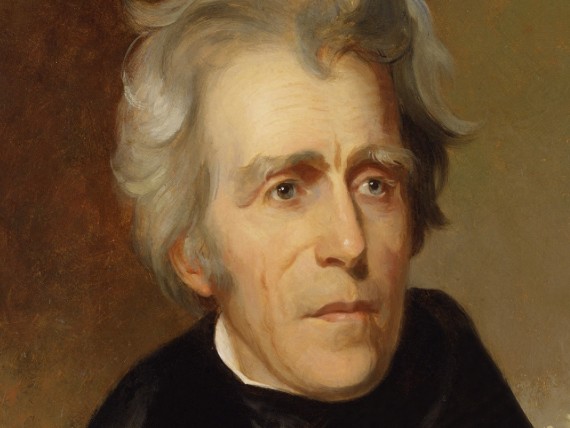
As part of its campaign to pander to the important and urgent needs of African-Americans with extremely divisive yet ultimately performative identity politics,[1] the Biden-Harris administration has announced that it will resume Barack Obama’s decision in 2015 to remove Andrew Jackson from the twenty-dollar bill and replace him with Harriet Tubman. Jonathan Waldman’s celebratory and condescending column in The Washington…
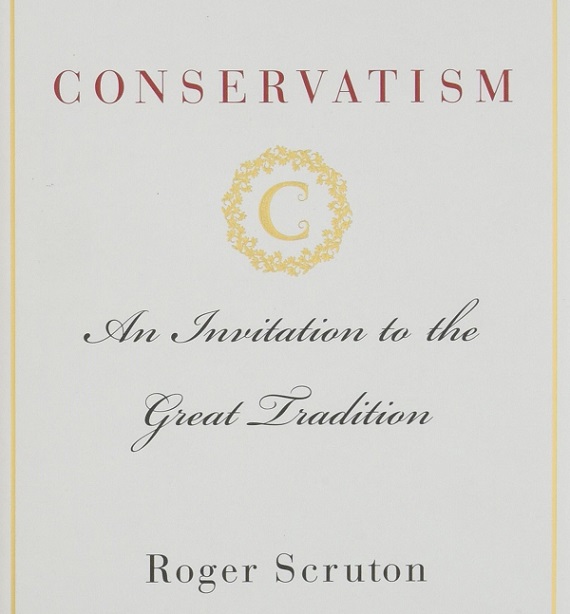
A review of Conservatism: An Invitation to the Great Tradition (All Points Books, 2018) by Sir Roger Scruton. There is no such thing as conservatism, according to Sir Roger Scruton’s 155-page monograph, Conservatism: An Invitation to the Great Tradition. That is, there is no unified theory of conservatism because it is always localized to a time, a place, and a…

Secession: The point of the spear aimed at the heart of the American Leviathan – or so I once thought. Certainly secession has been a live idea in Europe for a long time, often under the rubric of “self-determination.” Ludwig von Mises wrote in Liberalism in 1927 that “[t]he right of self-determination… thus means: whenever the inhabitants of a particular…

As of Friday, November 6, the votes are still being counted in at least six states. The large pro-Trump margins that seemed to prevail late election night have now disappeared as mail in votes, many of doubtful legality have begun to trickle in. Large Democratically-controlled cities like Philadelphia, Detroit, and Atlanta have miraculously produced tranches of almost completely Biden votes—legal…

Recently an acquaintance of mine remarked that the Confederate statue in her hometown should be removed from its present place of honour and relocated to the Confederate cemetery which is presently (and sadly) in a state of neglect. The statue should be moved, she said, because while the boys who fought and died during the Late Unpleasantness deserve to be…

On various occasions I’ve made references to Chronicles Magazine and cited articles printed in it. Remarkably, Chronicles is the only print magazine of stature (it is also online) in America which has represented and aired traditionalist conservative viewpoints, in depth and intelligently, now for forty-four years. Edited by Dr. Paul Gottfried (Raffensperger Professor of Humanities, Emeritus, Elizabethtown College), the magazine includes some of the finest writers…
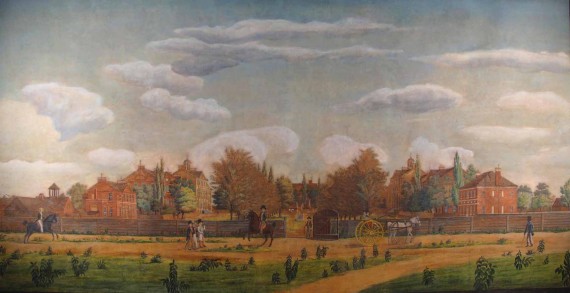
We hear a lot about “fake news” these days. Until I was its victim, I was skeptical about the extent of its existence. Now I understand why trust in the media is so low and why news networks are associated with leftist bias. I have learned, as well, that fake news does not necessarily consist of flagrant, outright lying; it…

A week ago Sunday—Easter Sunday, April 21—Aaron D. Wolf, Executive Editor of Chronicles Magazine, passed away. After what had been for him, his wife Lorrie, and his family one of the best weeks of his life, he was struck down on the Day of Resurrection by a sudden and massive heart attack: Our Lord had called Aaron unto Him. I…

Secession? Nullification? A second Civil War in the presently not-so United States of America? According to a historic and highly fascinating Abbeville Institute event that took place November 9 and 10, 2018 in Dallas, Texas, a number of influential American thinkers, political figures and activists gathered to discuss how peaceful secession and nullification could very well be one of the most important…
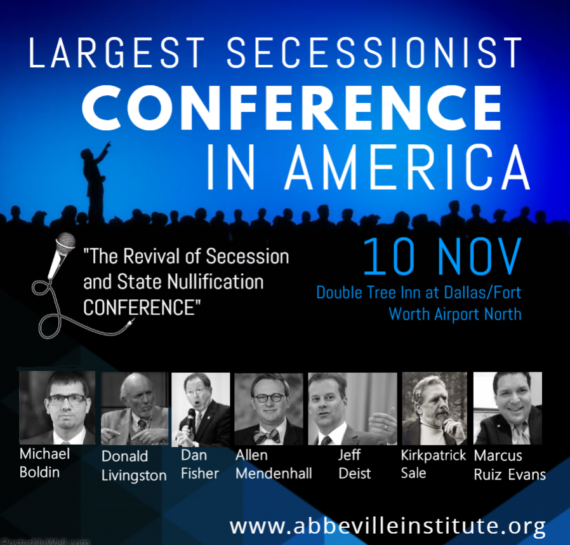
On June 20, 1816, Thomas Jefferson wrote to William Crawford: “If any state in the Union will declare that it prefers separation … to a continuance in union, I have no hesitation in saying, ‘Let us separate.’” Jefferson thought secession can be a good thing. Lincoln in his first inaugural presented secession as something always bad: “Secession,” he said, “is…
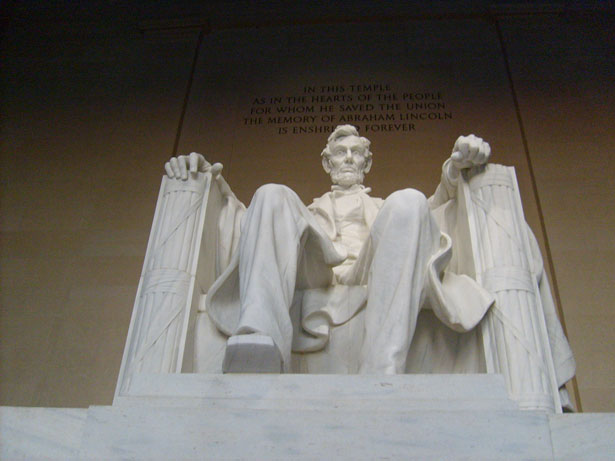
A Review of Union At All Costs: From Confederation to Consolidation by John M. Taylor (Booklocker, 2016). Most of the time, finding historical gems requires a lot of work and often long hours of arduous research. On rare occasions, they just fall into your lap. It is even more unusual for someone to simply drop one onto your plate. However,…

Is the South today a captive nation? Most Southerners would never consider the question—most likely because they would deem the issue to be absurd. But is it inane to ask such a question—is it forbidden in politically correct America to ask such a “confrontational” question? Conservatives would immediately dismiss such rhetorical questions as being unpatriotic or even treasonous—after all, everyone…
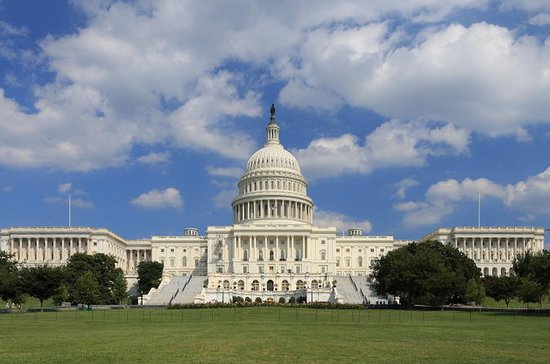
“When you are up to your hindquarters in alligators—it is hard to remember that your intentions were to drain the swamp.” This old country-boy saying seems most appropriate for President Trump as he attempts to “drain the swamp” in Washington, D.C. The continuing efforts of the ruling elite in Washington to destroy a lawfully elected president because “their” anointed candidate…
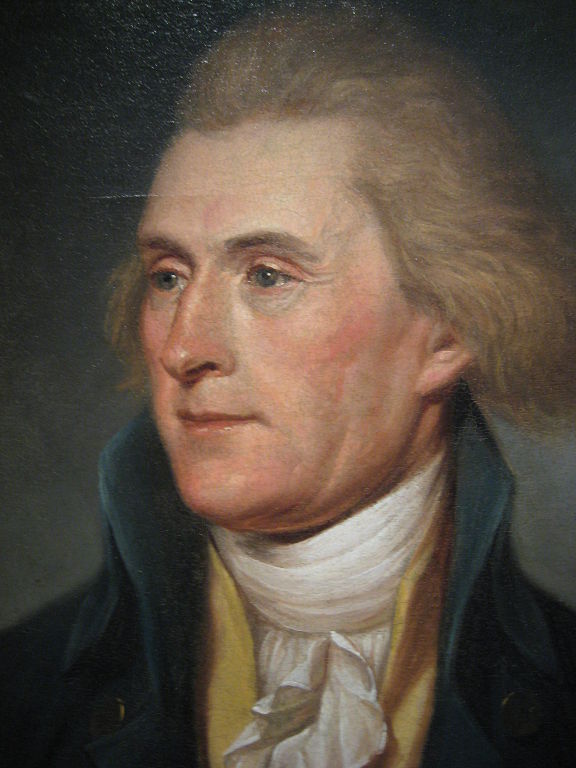
Dr. Donald Livingston on “When the South Was America, 1607-1861” at the 2016 Abbeville Institute Summer School on “The Southern Tradition and the Renewal of America,” June 2016.
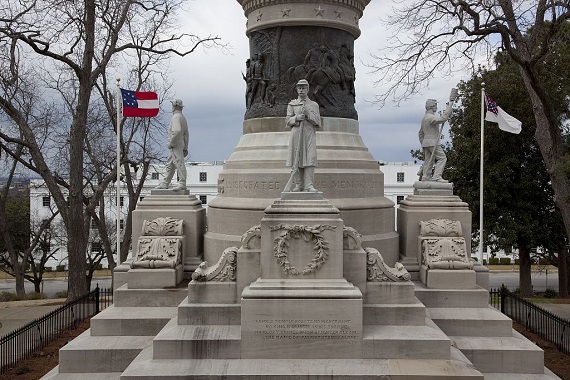
This piece was originally printed at AntoniusAquinas.com. On May 19, the House of Reprehensibles passed a proposal that would essentially ban the display of Confederate flags from national cemeteries. The amendment was added to a Veteran Affairs spending bill. Not surprisingly, House Speaker Paul Ryan allowed the measure to be voted upon in hopes of not disrupting the appropriations process. …
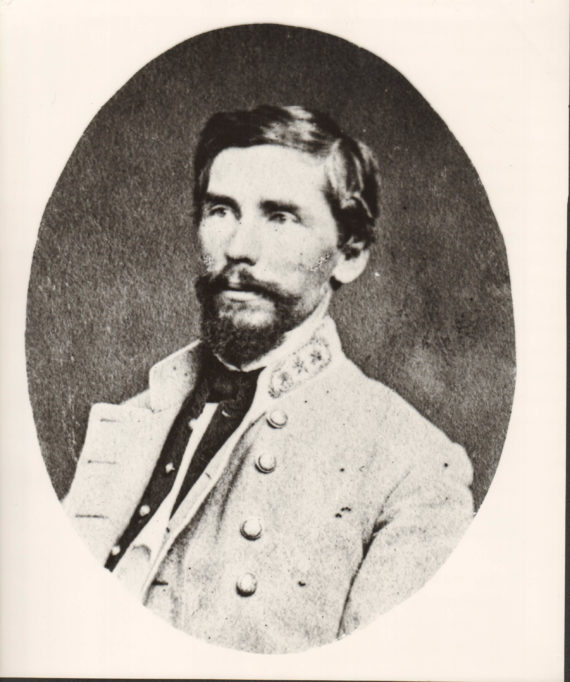
The following is a transcription of a speech given at the inaugural Education Conference of the Alabama Division of the Sons of Confederate Veterans: ‘The best men of the South have long desired to do away with the institution and were quite willing to see it abolished.’ – Robert E. Lee ‘Most informed men realized that slavery was not…
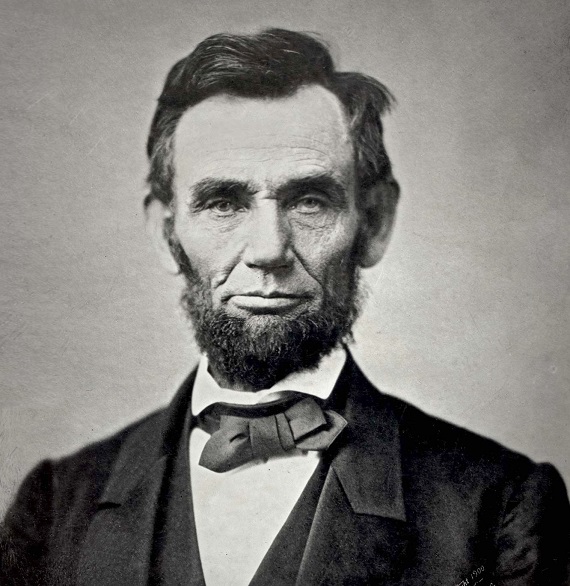
Professor Thomas DiLorenzo’s The Real Lincoln has provoked the utterly predictable torrent of abuse from state worshipers and self-appointed prophets of The True American Way. All DiLorenzo has done (and this does not in the least detract from his courage, eloquence, and insight) is to analyze Honest Abe as a historical figure just like any other, rather than treat him…

Donald Livingston on “The Real Reason the South Seceded” at the October 2015 Abbeville Institute Conference in Stone Mountain, GA.

When I moved to Wilmington, North Carolina as a retiree over twenty years ago, I brought much of the Yankee historical baggage—as written by the victors—of the War Between the States, or Lincoln’s War as many Southerners know it. I’ve always been interested in history, so naturally I wanted to understand more about the Southern views of the war. I…

Donald Livingston on the 14th Amendment and Centralization at the 2003 Abbeville Institute Summer School

Donald Livingston discusses the nature and meaning of secession at the 2003 Abbeville Institute Summer School.
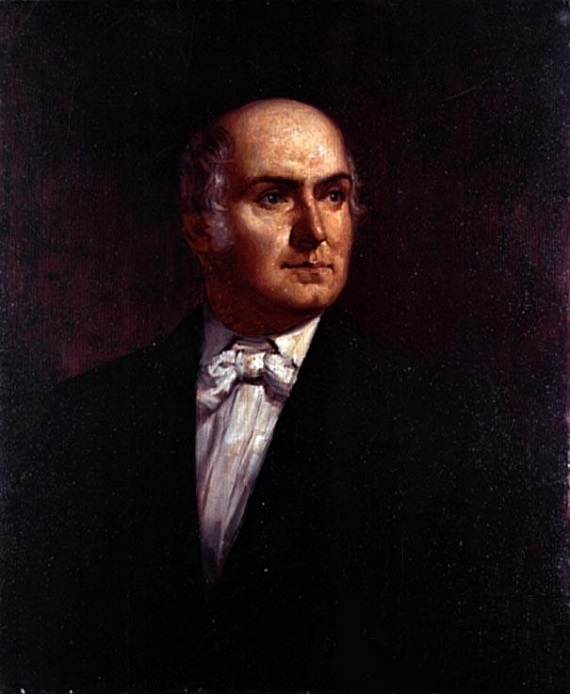
This essay is published in honor of Abel P. Upshur’s birthday, June 17, 1790. Today, States’ rights are remembered as a legalistic excuse for the preservation of slavery – a part of the past best forgotten. One historian scoffs at the notion of “loyalty to the South, Southern self-government, Southern culture, or states’ rights,” declaring that “slavery’s preservation was central…

Maryland Redeemed Everybody knows that our national anthem, “The Star-Spangled Banner,” was written by Francis Scott Key as he watched the British attack on Fort McHenry in Baltimore harbor during the War of 1812. Almost nobody knows the rest of the story. In 1861, Key’s grandson, Francis Key Howard, was locked up in Fort McHenry. Howard wrote: “The flag which…
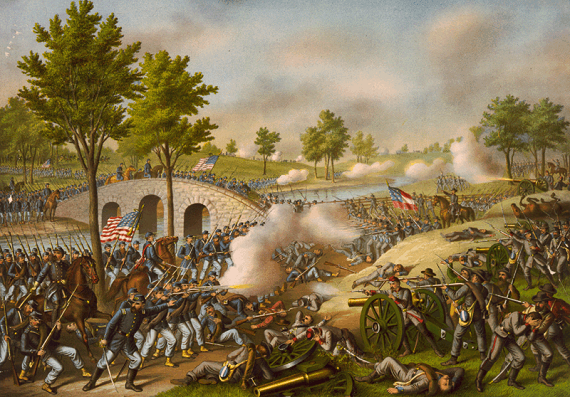
After my last trip to Gettysburg with Kent Masterson Brown, I could hardly wait for Sharpsburg. The experience did not disappoint. Kent was as congenial as ever, warm with his longtime followers (a group of fellow Kentuckians known as the ‘I Corps”) and welcoming to newcomers – many of whom, I was happy to discover, came from the Abbeville Institute….
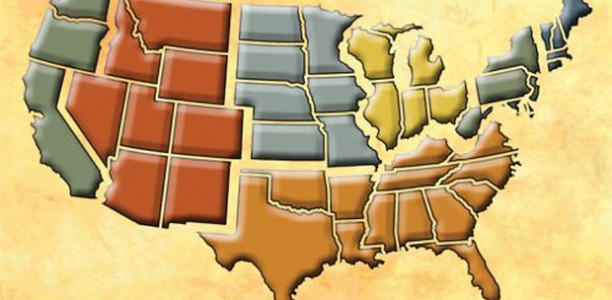
INTRODUCTION It is dangerous to attempt an article on a topic so relevant and current. As I drafted this article, President Obama has recently ordered air strikes on ISIS, and troop levels are again rising in Iraq. We are in a challenging position, considering the Just War Tradition (JWT) in such a context. We could go through the typical just…

“There is not a truth existing which I fear, or would wish unknown to the whole world.” – Thomas Jefferson, 1826, days before death It is now accepted as a fact that one of the preeminent Founding Fathers, Thomas Jefferson – the Apostle of Liberty and Reason – engaged in an illicit sexual relationship with one of his slaves, Sally…

2014 was a remarkable year for the Abbeville Institute. 1. Our well attended Twelfth Annual Summer School focused on the War for Southern Independence. Southerners fought the bloodiest war of the 19th century against overwhelming odds for national independence. About a quarter of Confederate generals were born in the North or in Europe. Why were so many Northerners who had…
What are people for? –Wendell Berry I do not view politicks as a scramble between eminent men; but as a science by which the lasting interest of the country may be advanced. –Calhoun Citizens must fight to defend the law as if fighting to hold the city wall. –Heraclitus Yea, they made their hearts as an adamant stone, lest…
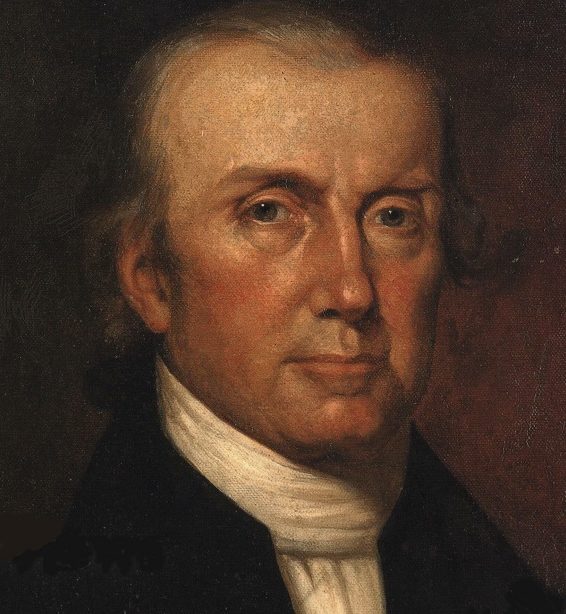
Dr. Donald Livingston discusses the proper size and scale of government at the Lindenwood University Hammond Institute Liberty and Ethics Center Spring Conference, March 22, 2014.

Dr. Donald Livingston at the 2004 Abbeville Institute Summer School:
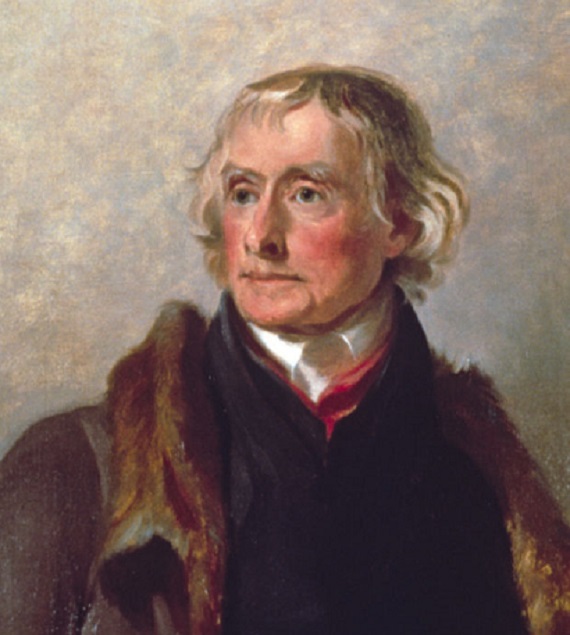
Donald Livingston discusses the Jeffersonian philosophy of small republics and the proper size and scale of government. This talk was delivered for the Thomas Jefferson Heritage Society in November 2013.

Abbeville Institute founder Donald Livingston talks to Tom Woods on the Tom Woods Show about the principle of secession and the Southern political tradition. http://www.schiffradio.com/pg/jsp/verticals/archive.jsp?dispid=310&pid=66010

In 2010, the Abbeville Institute asked the question, “Is America Too Big?” This project was intended to be a multi-part series that pondered the future of the United States. Due to funding, we were only able to produce Part I, shown below, but we were ahead of the curve on the issue.
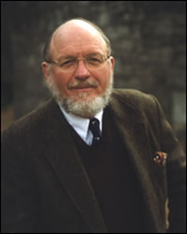
Don Livingston discusses the Southern political tradition at the 20th Anniversary Conference, April 2023. To purchase all of the lectures, visit https://abbevilleacademy.org/p/the-southern-tradition-in-the-21st-century
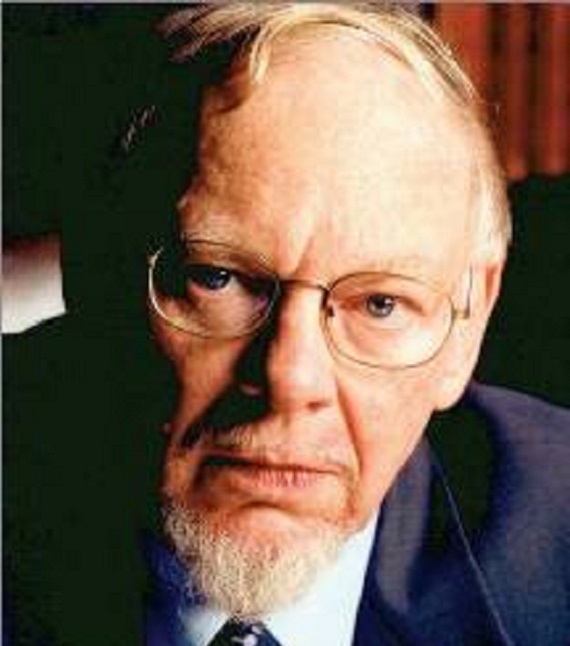
On Sunday, June 11, 2023, my dear friend and a man who is rightly called “the Dean of Southern Historians,” Dr. Clyde N. Wilson, celebrated his 82nd birthday. For some fruitful fifty-five of those years he has been at the forefront of efforts to make the history of his native region better known, and, as events and severe challenges to…
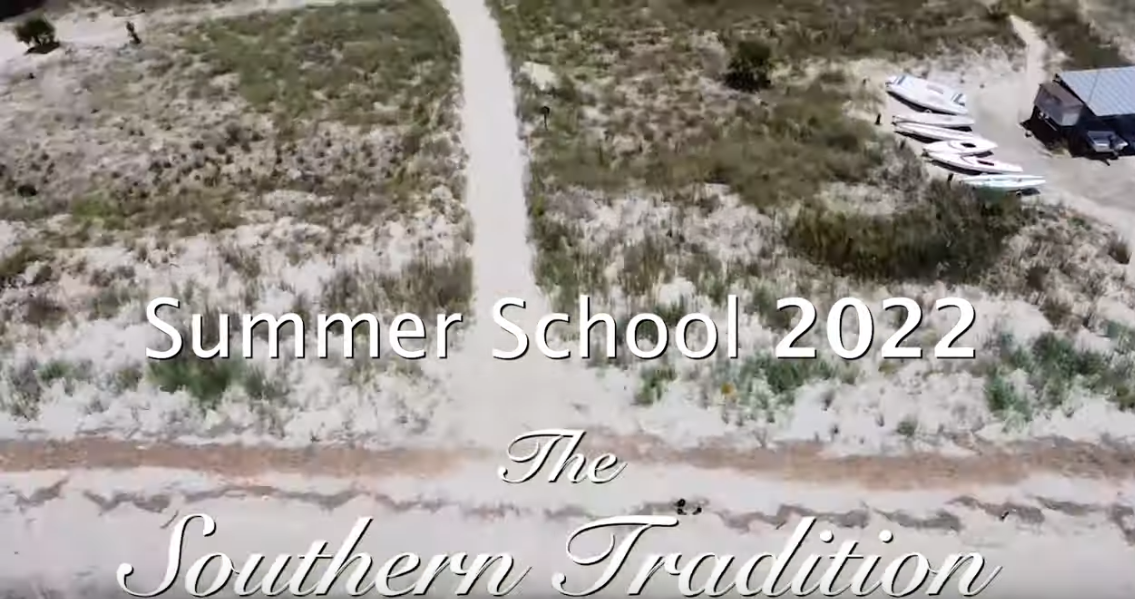
Don Livingston discusses Northern profit and interest in slavery at the Abbeville Institute Summer School, July 5-8, 2022, at Seabrook Island, SC.

Don Livingston discusses Northern profit and interest in slavery at the Abbeville Institute Summer School, July 5-8, 2022, at Seabrook Island, SC.
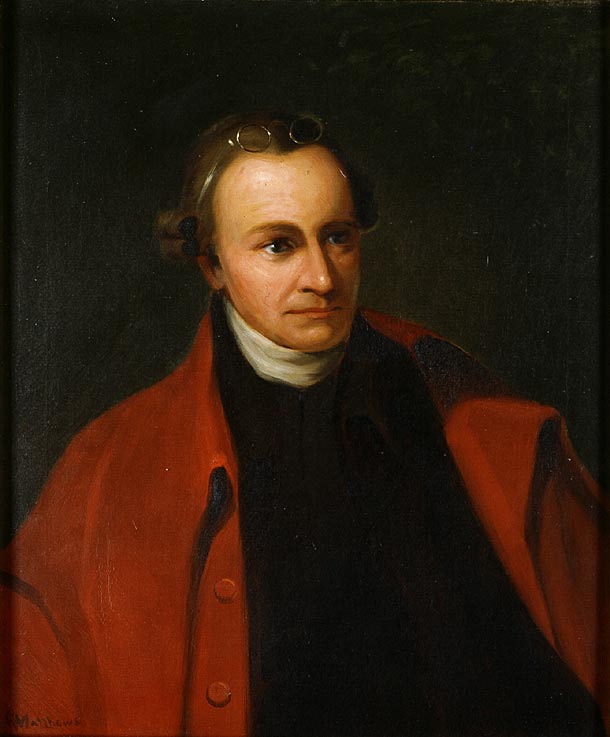
From the 2003 Abbeville Institute Summer School. I’m going to be talking about the Anti-Federalists. The first question we might ask is: “Who were the Anti-Federalists and why did they take the position they took?” Today, historians are never happy just to study the writings, speeches, correspondence, and other documents produced by the protagonists of an era or a battle….

In a speech to the Georgia legislature in 1866, Former Vice President of the Confederacy Alexander Stephens urged, “That wise and humane provisions should be made for [the freedmen]” and that they “may stand equal before the law, in possession and enjoyment of all rights of person, liberty, and property. Many considerations claim this at your hands. Among these may…
Tue, 30 Apr 2019 17:35:05 +0000 donlivingston Download MP3
Thu, 15 Dec 2016 19:07:51 +0000 donlivingston Download MP3
Tue, 01 Aug 2017 14:55:24 +0000 donlivingston Download MP3
Tue, 01 Aug 2017 15:09:20 +0000 donlivingston Download MP3
Wed, 11 Apr 2018 17:21:10 +0000 donlivingston Download MP3
Wed, 14 Dec 2016 18:58:57 +0000 donlivingston Download MP3
Wed, 14 Dec 2016 19:14:26 +0000 donlivingston Download MP3
Wed, 13 Aug 2014 00:26:13 +0000 donlivingston Download MP3
Mon, 28 Sep 2015 17:52:03 +0000 donlivingston Download MP3
Mon, 28 Sep 2015 17:58:46 +0000 donlivingston Download MP3
Mon, 28 Sep 2015 18:00:37 +0000 donlivingston Download MP3
Tue, 29 Sep 2015 13:06:29 +0000 donlivingston Download MP3
Tue, 29 Sep 2015 13:11:06 +0000 donlivingston Download MP3
Wed, 30 Sep 2015 13:40:23 +0000 donlivingston Download MP3
Wed, 30 Sep 2015 16:53:14 +0000 donlivingston Download MP3
Wed, 30 Sep 2015 16:54:41 +0000 donlivingston Download MP3
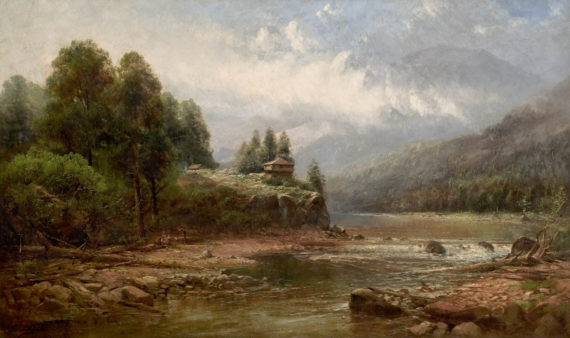
‘The first step in liquidating a people is to erase its memory. Destroy its books, its culture, its history. Then write new books, manufacture a new culture, invent a new history. Before long the nation will begin to forget what it is and what it was. The world around it will forget even faster.’ – Milan Kundera ‘I personally think…
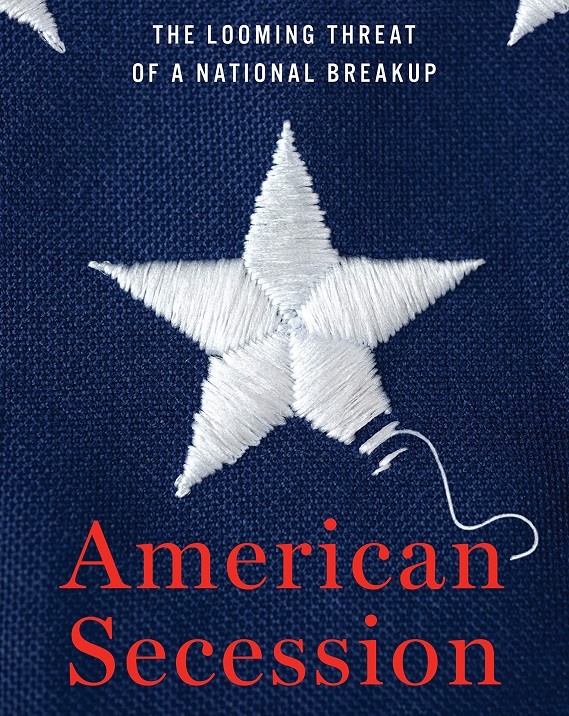
A review of American Secession: The Looming Threat of a National Breakup (Encounter Books, 2020) by F.H. Buckley When asked whether a state can constitutionally secede from the United States, Supreme Court Justice Antonin Scalia brushed the question aside, saying the matter was settled by the Civil War. He was wrong. A Zogby poll in 2018 found that 39 percent of…
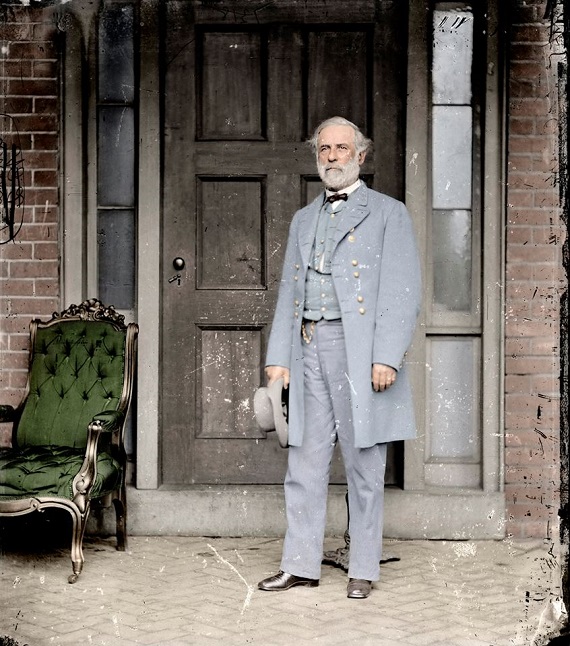
Over a century and a half has passed since Confederate States General Robert E. Lee surrendered the Army of Northern Virginia to General Ulysses S. Grant. Yet, despite surrender by one and victory by the other, controversy continues regarding which man better represents the virtues of honor, duty, and American patriotism. For those who believe that might makes right, then…

The culture war rages on. And what a war! There seems to be a new outrage almost every day. “Make it Right,” a New York organization dedicated to hunting down and removing all Confederate monuments from public space, has as its symbol an image of the statue of Lee taken down by a crane in New Orleans, and the director…

I am always annoyed when a conservative political leader attacks Southern heritage. I don’t know why because with the present-day crop of cowardly politicians, it is becoming routine, but I am. Unwittingly or not, these modern day Scalawags adopt the “politically correct” line, even though they know (or should know) that political correctness is nothing more than a euphemism for…

‘Their revolution (the South in 1861) … was in fact an act of restoration, for the constitution drawn up in Montgomery in 1861 for the Confederate States of America was a virtual duplicate of the United States Constitution.” John McCardell in his Introduction to Jesse T. Carpenter’s “The South as a Conscious Minority, 1789 – 1861”, re-published by the University…
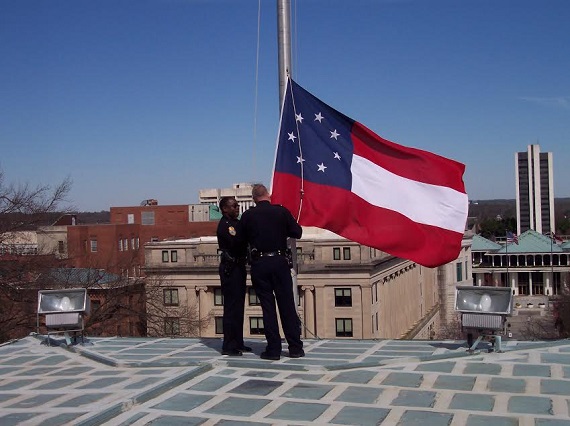
For thirty-one years the North Carolina Division of the Sons of Confederate Veterans has sponsored annually Confederate Flag Day, an event commemorating our state’s rich history and Southern heritage, held in the House of Representatives chamber of the historic 1840 Tar Heel State Capitol. First proclaimed by former Governor James G. Martin in 1988, the day has served as an…
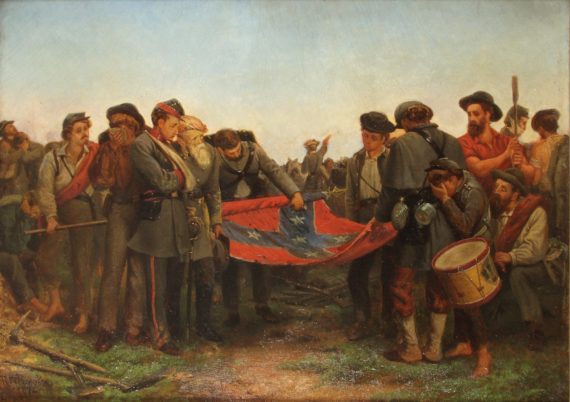
The Southern political tradition, in practice and theory, is one of its most valuable contributions to America and the world. The one constant theme of that tradition from 1776–through Jefferson, Madison, John Taylor, St George Tucker, Abel Upshur, John C. Calhoun, the Nashville Agrarians, Richard Weaver, M. E. Bradford, down to the scholars of the Abbeville Institute–is a systematic critique…
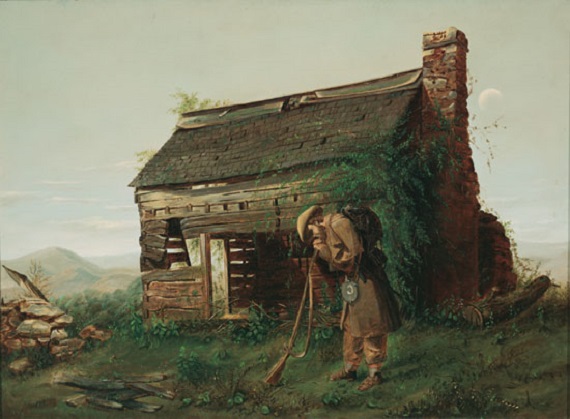
The destruction of Confederate monuments and the slandering of all things Confederate is in vogue in contemporary mainline media, academia, and the political establishment. The destruction of Confederate monuments by radical mobs is similar to the radical Taliban’s destruction of Buddhist monuments and the Soviet Union’s denial of public expressions of native culture in the Baltic states—all are examples of…

The Abbeville Institute conducted three conferences this year on the fracturing of American national identity and what means for the Southern tradition and the Southern people. The general public knows America is coming apart and that they’re anxious about it, but most don’t understand why because our political leaders and the national media generally suppress its origins. We wanted to…
Picture it. A book store in Madison, Wisconsin, in the mid-’90s. Quite the unlikely place you’d expect to be exposed to the true history of the Pilgrims being totalitarian religionists, not the freedom-seeking refugees in funny hats, bonnets, and buckled-shoes we hear about in grade school. This took place at a book signing and lecture, not given by a historian,…
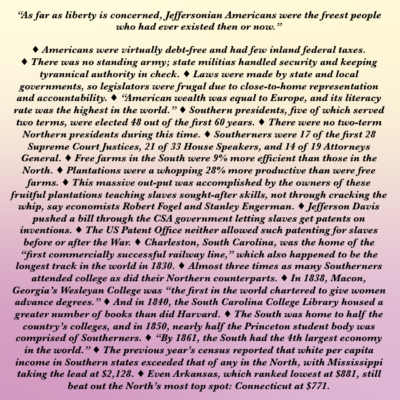
“It was my first introduction to damn Yankees,” my oldest sister remarked of her first semester at James Madison University in the fall of 1982. It was here, at this university nestled in the mountains of Virginia and named after one of the state’s most famous sons, that her Northern dormitory suite-mates were horrified by such flagrant abuse of their…

Essayist William Deresiewicz recently lamented that modern college students, and college life in general, have become “profoundly unintellectual.” The “snowflake” generation is the byproduct of educational institutionalization. Will this be on the test, and will I get a study guide? Deresiewicz should also indict the faculty and administration who encourage this “unintellectual” environment. This results in a crop of students…

Tobias Lanz has been an adjunct professor of political science for some twenty years at the University of South Carolina. In a class of 200 students cell phones go off, and Lanz eases the interruption by taking the topic at hand, e.g. Russian policy in Syria, by saying “that must be the Kremlin calling.” Last week the topic was the…

White privilege has become a major leftwing talking point and justification for a plethora of progressive initiatives that can best be described as reverse racial discrimination. White privilege is the mirror image of white supremacy. Both are evil ideas based upon race consciousness linked to a political ideology that denies the value of the individual. White supremacy is the outward…
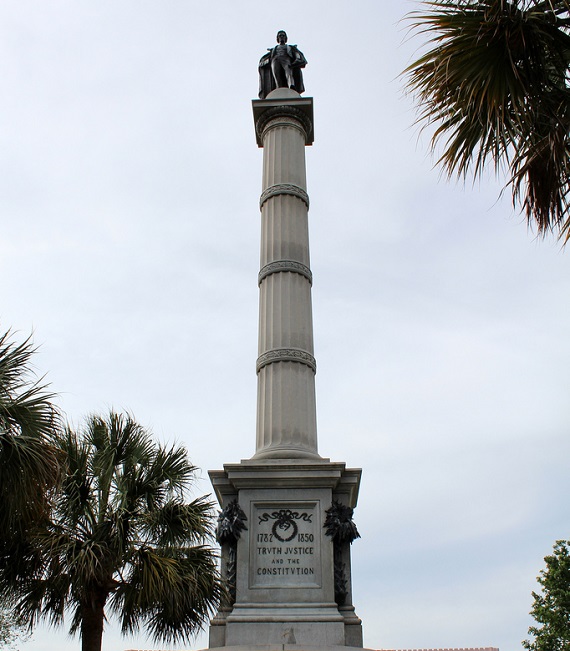
John C. Calhoun–valedictorian of his class at Yale, Vice President, Secretary of War, and Senator–was one of the greatest statesmen America has produced. Margaret Coit wrote a favorable biography of him in 1950 that won a Pulitzer Prize. In 1959, a Senate committee, headed by John Kennedy, ranked him among the five greatest senators in American history. Calhoun wrote one…

Presented at the 2017 Abbeville Institute Summer School. When historians discuss reasons for Southern secession, as if the South needed to produce one, perhaps the most important, and sometimes neglected, motive was the protection of the Jeffersonian tradition, essentially the right to self-government. What was this Jeffersonian tradition or ideal? It is our lost political heritage of limited government and…
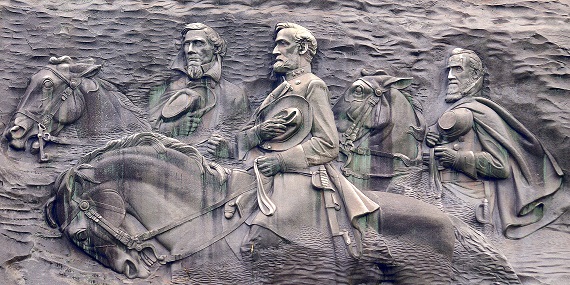
Presented at the 2017 Abbeville Institute Summer School. You are deplorable. It is worse than that. If you are Southern or interested in the South you are the most deplorable of all the deplorables. There is no place for you among the enlightened and virtuous people of 21st Century America. But perhaps there is a certain advantage to being an…

In his first Inaugural address, Abraham Lincoln explained his moral justification for invading the Southern States. Plainly, he said, “the central idea of secession is the essence of anarchy.” He reasoned that if a State can lawfully secede from the Union, so can a part of that part and a part of that part, on down to one individual and…

United States District Judge Carlton Reeves is considering a lawsuit by Mississippi attorney Carlos Moore to rule that the Mississippi State flag is unconstitutional because it is “anti-American,” meaning it symbolizes secession and slavery. I leave aside the contorted legal reasoning that might support such a suit, namely whether Moore has standing to sue, if this is a judicial not…
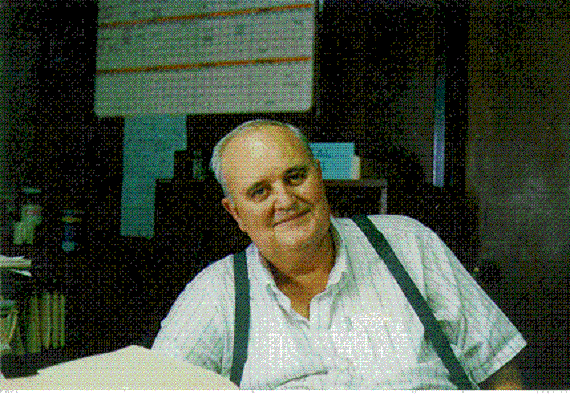
I have called M.E. Bradford the Agrarian Aquinas. He did not write a Summa, but his work as a whole enriched and carried into new territory the message of I’ll Take My Stand on a broad front of literature, history, and political thought. He came at a crucial time when Richard Weaver had passed his peak of influence and the…
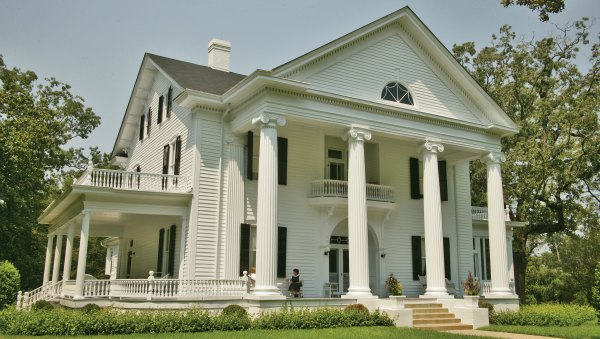
Tom Watson Brown was an icon of the Southern tradition and one of its strongest defenders. He was a respected attorney, businessman, civic leader, philanthropist, and, in addition, a very learned man who possessed a library of over 10,000 volumes. He graduated magna cum laude from Princeton with a degree in history, and studied law at Harvard. He was also…

Self government and the secession required for it in oversized States are as much a province of the Left as of political conservatives. It was the left that raised the question of secession after Al Gore lost the presidency to George W. Bush. They wondered why they had to be yoked with the people and policies of the Red States…

Ladies and Gentlemen, Scotland voted “No” to independence. The media will have you believe this was a crushing victory. After all, only 45 percent of the Scottish people voted for secession. We should flip that on its head. 45 percent of the nearly 90 percent of eligible voters voted FOR self-determination. The “No” vote barely won, and the aftermath is…

When the Scottish Parliament voted to join the English Parliament in 1707, it seemed the end of Scottish national identity. It was thought that a small country like Scotland could not succeed economically without being politically integrated into a powerful trading country like England. This gave rise to a “small country” versus “large country” debate. Out of this debate,the Scottish…
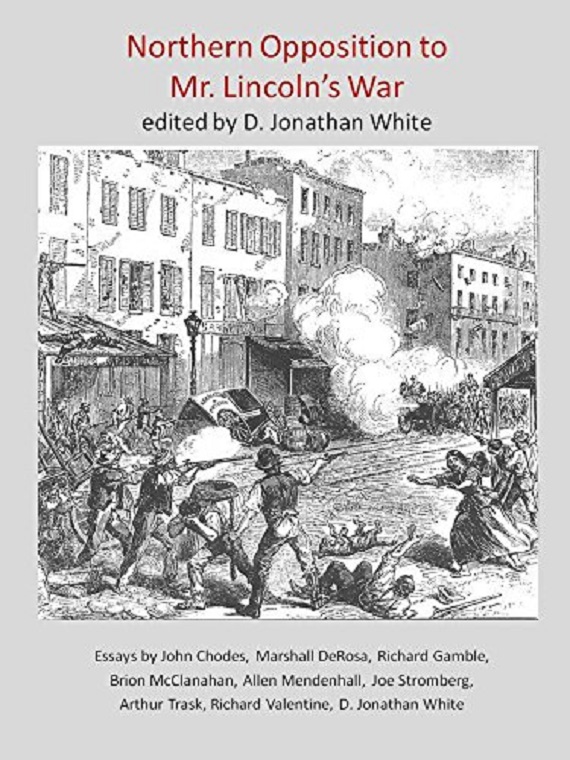
The Abbeville Institute is pleased to announce the launch of The Abbeville Institute Press and our first title, Northern Opposition to Mr. Lincoln’s War, edited by D. Jonathan White. An enduring feature of American folklore is that with the Confederate bombardment of Fort Sumter, the North rose to a man in righteous determination to suppress treason and slavery. The response…

Abbeville President Don Livingston talks to Tom Woods about the Southern tradition, secession, and the principles of American government.
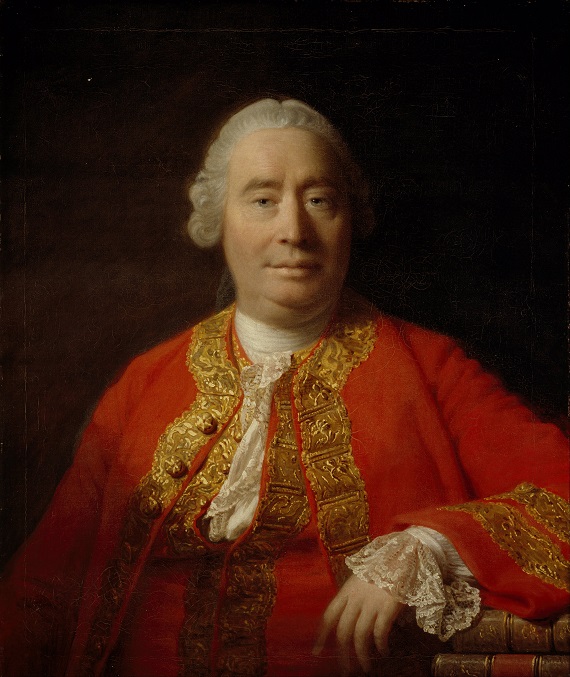
Aristotle taught that “To the size of states there is a limit, as there is to other things, plants, animals, implements, for none of these things retain their natural power when they are too large or too small.”1 In this paper I want to explore Hume’s views on the proper size and scale of political order. Size and scale are…
A few months back, I had a student ask me about Don Livingston’s characterization of Jefferson Davis in a paper he presented to the Mises Institute in 1995 titled “The Secession Tradition in America.” The student wondered if Livingston’s statement, “Jefferson Davis was an enlightened slave holder who said that once the Confederacy gained its independence, it would mean the…

This two part lecture by Abbeville Institute founder Don Livingston concentrates on the dichotomy between Thomas Jefferson’s conception of Union and Abraham Lincoln’s “national” argument.
